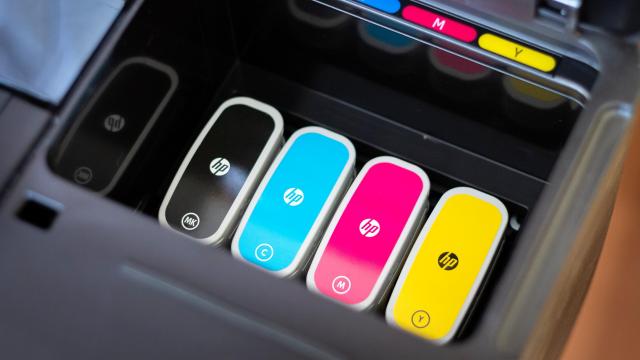Printers are one of the great necessary evils in our modern world, much to the chagrin of consumers. Now a U.S. federal judge has ruled that HP must face a class action lawsuit, in which the plaintiffs argue that the company’s all-in-one printers brick themselves when the ink runs low.
The lawsuit was filed in June in the Northern District of California federal court, but the Associated Press reports that yesterday, U.S. District Judge Beth Labson Freeman tossed out the company’s attempt to dismiss the suit. The lawsuit argues that HP’s all-in-one printers cease to function once any of its ink cartridges run dry—including all non-printing functions. In other words, if ink levels in one of the four cartridges (black, cyan, yellow, magenta) are deemed too low by the printer, users have found they are unable to scan or fax an item.
“What HP fails to disclose is that, if even one of the ink cartridges is too low, empty, or damaged, the scanning function on the ‘all-in-one’ printer will be disabled and will not work as advertised,” the complaint reads. “None of HP’s advertising or marketing materials disclose the basic fact that its All-in-One Printers do not scan documents when the devices have low or empty ink cartridges.”
HP did not immediately return Gizmodo’s request for comment on the pending case.
The plaintiffs initially filed the lawsuit last year. Judge Freeman dismissed that lawsuit, but allowed them to refile, with the updated complaint submitted earlier this summer.
This is not the first time HP has landed in hot water over shady practices concerning its printers. Gizmodo previously reported that HP printers were rejecting third-party ink, forcing consumers to buy the company’s own overpriced ink cartridges. HP is not alone, however, in allegedly bricking its printers when the ink runs dry—Canon faced a similar lawsuit back in 2021. Likewise, Epson was accused of having printers shut down after some arbitrary amount of use.
